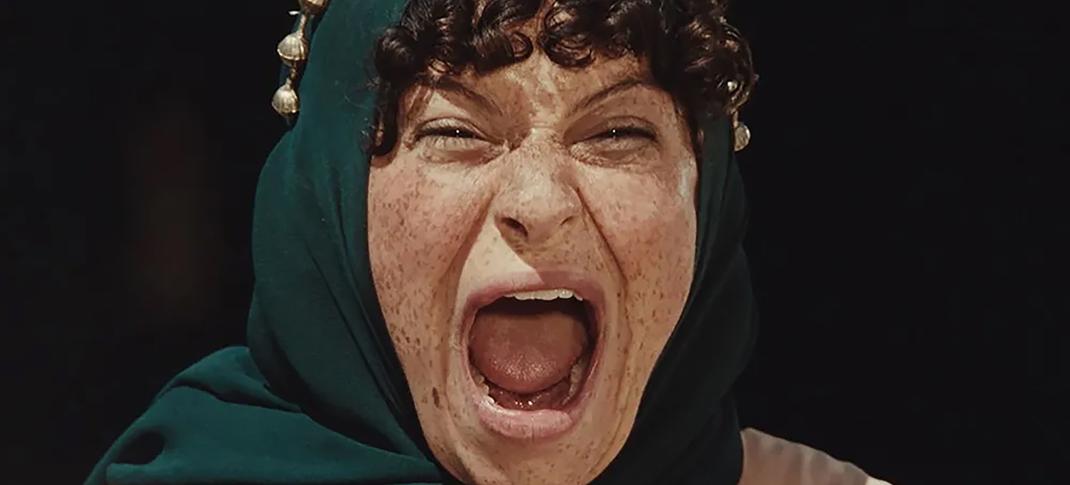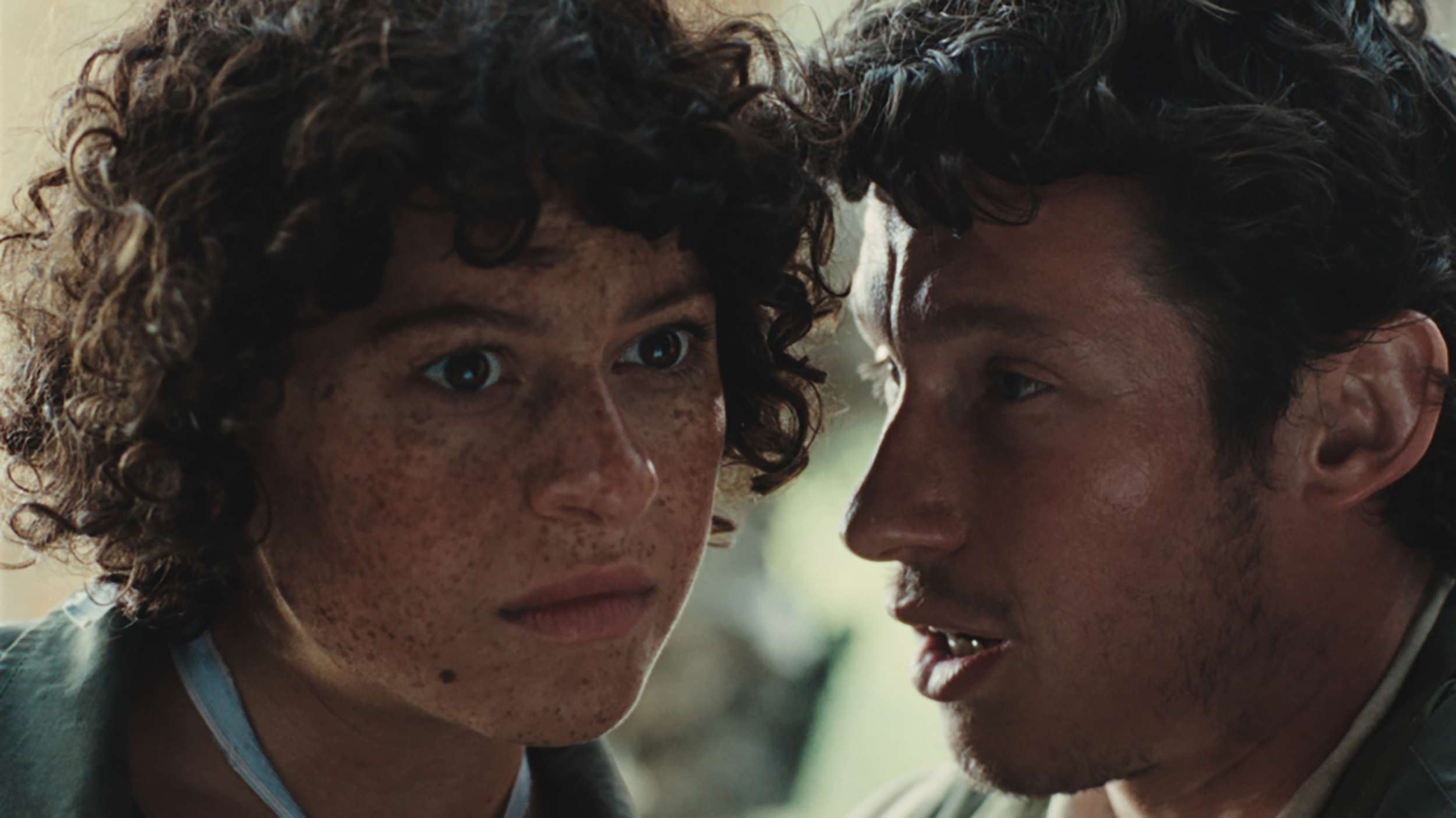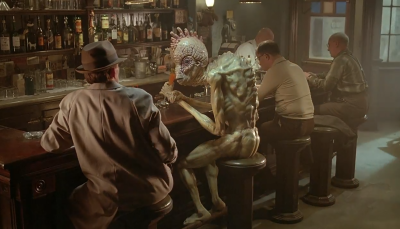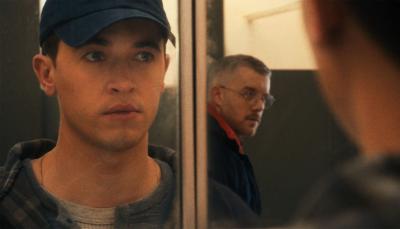Political Satire 'Atropia' Skewers the Past Without Informing the Present

Alia Shawkat as Fayruz in 'Atropia'
Sundance
In the Mojave Desert, the United States military built a cluster of Iraqi villages on the grounds of army base Fort Irwin. Here, hundreds of civilian roleplayers (often of Middle Eastern descent) were paid to pretend they lived in Iraqi, Afghani, and Russian villages after an American military invasion – one of the largest being Medina Wasl. In the 2000s, soldiers were trained to liaise with Iraqi natives, endure the local conditions, and engage their enemy of (roleplay) insurgents before they were deployed in the War on Terror. Watching footage of Medina Wasl, a state-funded sandbox of ideology, immediately prompts questions about its construction and function; the dulled, throbbing absurdism underpinning the training site is amplified in Hailey Gates’ Atropia, a war satire starring Alia Shawkat as Fayruz, an Iraqi-American actress looking to be talent-spotted in Medina Wasl – known as “the Box” – and Callum Turner as Tanner, an Iraq veteran who uses the terrorist alias “Abu Dice” to train up real soldiers.
Based on a short film also starring Shawkat, Atropia just scooped up the US Dramatic Prize at Sundance, and it’s easy to see why Hailey Gates’ debut feature has attracted a high degree of attention. The premise sets up a film that needs to be seen to be believed – inside a make-believe space of ugly, livewire politics (which still exists to this day), we see a parodic depiction of “terminal actor brain” failing to register the strangeness of their precious gig – until she meets a grounded, handsome co-star whose honesty recalibrates her fictional reality and the real one underpinning it.
The proximity of Fort Irwin to the entertainment industry means a lot of Hollywood talent is called upon to train America’s infantry, and the friction between jobbing actors, not-in-character prop-makers, and military personnel contributes to the film’s probing of Bush-era foreign policy. Ensuring young soldiers feel prepared for their Iraq tour does a lot to affirm that they’re supposed to be there in the first place, even though, during their stint in Medina Wasl, they are deployed in a fake war to prepare for an equally manufactured one.
The brash, morbid tone – best encapsulated by Fayruz’s performative howls of agony during exercises, channeling her best impression of a “mourning Middle Eastern woman” – has its sights set on the stupidity of American imperialism. Atropia’s fatal flaw is that the film hesitates once the target is lined up – or worse, it considers its mission accomplished. In her eagerness to dive into a rich and absurd premise, Gates neglects the political commentary beyond underlining the ironies and tension of a setting that screams “political” itself.
Like another Sundance title, Plainclothes, Atropia reveals an insecurity about its critical scope, as it abandons a fraught system of tensions to focus on individual character drama that, by its conclusion, is like a wispy overreach. There are plenty of escalating episodes in Atropia that point to blurred lines between fiction and reality: an A-list actor integrates himself with military maneuvers; Fayruz bribes her way to act as a bride who bribes Tanner; at her most emotionally volatile and vulnerable, Fayruz accepts a pretend suicide bombing mission.
However, the film lacks clear stakes – even though clear thought has been put into Fayruz’s complex relationship with Iraq and the soldiers invading it, little of her story is imbued with risk and tension. Gates’ script is careless not just about denoting what’s real vulnerability and what’s in-character performance, but also which moments of honesty and fantasy are most material to the drama.
In one of the only sequences set outside the military base, Fayruz and Tanner walk among the artificial, glittery structures of Las Vegas, and they give a one-line acknowledgment of how his army fatigues and her traditional Iraqi dress make them a strange sight to Bush-era tourists. It summarizes Atropia’s ambition and limitation in one – a striking visual set-up with a flimsy afterthought of a pay-off.
You wonder if a more fractured ensemble narrative would have suited the film better – casting Tim Heidecker and Chloë Sevigny as desk-bound military bureaucrats is such inspired casting that you lament their microscopic presence in the movie, plus skilled actors like Shawkat and Turner (who, unfortunately, share little chemistry) would fare better if their arc were compressed into shorter episodes throughout the story.
When the on-screen text at the end informs us that Fort Irwin now runs simulations of wartorn Russia, it dawns on us that Atropia has not provided any additional insight into the 18 years between the film's set and our current moment. In its eagerness to show us what’s inside the Box, Atropia doesn’t elaborate on what it means.





